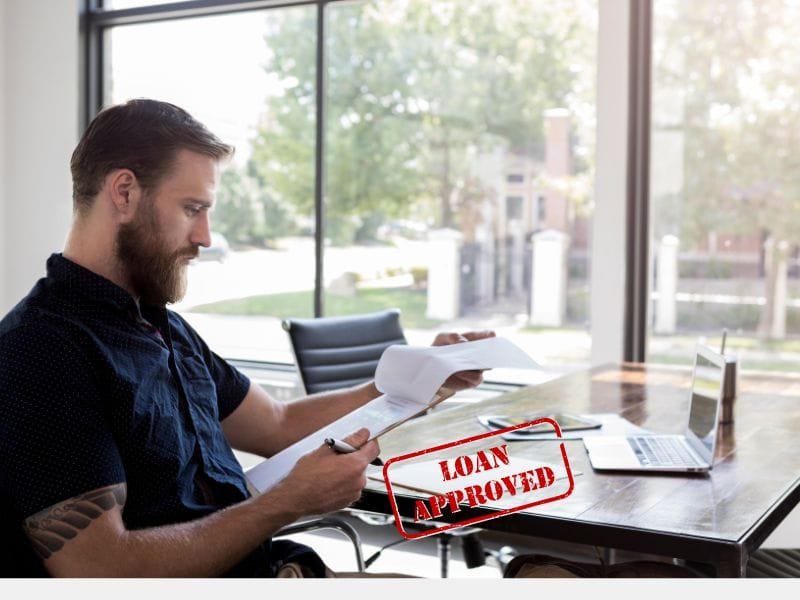Table of Contents
ToggleEverything You Need to Know About Unsecured Business Loans in the U.S.
If you’ve ever Googled “unsecured business finance loans” and felt like you fell into a maze of financial jargon, you’re not alone. The world of unsecured loans is vast, intricate, and sometimes feels more complex than assembling furniture from IKEA without the manual. But fear not, because we’re here to break it down in a way that even your neighborhood cat would nod along to (if cats cared about business finance, that is).
What Are Unsecured Business Finance Loans? (A Fancy Name for Borrowing Without Collateral)
Let’s get this straight—unsecured business loans are like borrowing money from your friend without offering your prized guitar or car as security. The lender trusts that your business will thrive and that you’ll repay the loan (fingers crossed). It’s like dating someone who believes in your potential rather than just your current bank balance.
Unlike secured loans where you put up collateral, unsecured loans rely on your creditworthiness and business performance. But don’t think it’s a free-for-all! Lenders still dig deep into your credit report, revenue streams, and sometimes even your social media (so delete that tweet about hating banks).

Questions You Might Have About Unsecured Business Finance Loans
- What is an unsecured loan, really? – It’s a loan that doesn’t require collateral, meaning you don’t have to pledge your office chair or coffee machine as security.
- What’s the catch? – Higher interest rates, shorter repayment terms, and your lender possibly calling you more often than your mom.
- Who’s eligible for these loans? – Small businesses, startups, or anyone with a dream, a business plan, and decent credit (sorry, no funding for your idea of pet rocks 2.0).
- What can I use the loan for? – Inventory, marketing, hiring staff, buying a fancy coffee machine to woo investors… you name it.
- What happens if I don’t repay? – Expect a damaged credit score, a lot of angry letters, and possibly an uninvited financial advisor at your doorstep.
- Can startups apply? – Yes, as long as you have a robust business plan and the lender believes in your idea (bonus points if it involves something trendy like AI or eco-friendly products).
- How fast can I get the money? – Typically faster than your morning coffee delivery—often within 24-48 hours.
- What’s the maximum amount I can borrow? – Depends on your creditworthiness and business performance, but some lenders offer up to $500,000.
- Is it safe to apply online? – Yes, if you stick to reputed lenders and avoid sketchy websites promising loans in exchange for your firstborn child.
- What’s the difference between secured and unsecured loans? – Collateral. One demands it, the other doesn’t.
How to Apply for an Unsecured Business Finance Loan (Without Losing Your Mind)
- Assess Your Needs First, decide how much you need and why. Be specific—“$10,000 for expanding my coffee shop” sounds better than “$10,000 because why not?”
- Check Your Credit Score Remember, lenders treat your credit score like your GPA in school—the higher, the better. If it’s low, consider fixing it before applying.
- Research Lenders Compare interest rates, repayment terms, and hidden fees. A little research can save you from future headaches.
- Prepare Documents Lenders usually ask for proof of income, a business plan, and identification. Treat this like a job interview but for your business.
- Submit Your Application Most lenders have online portals—fill out the form, upload documents, and hit submit. Then, cross your fingers and wait.
Pros and Cons of Unsecured Business Finance Loans
Pros:
- No Collateral Needed: Your prized possessions stay safe.
- Quick Approval: Ideal for emergencies.
- Flexible Use: Spend it on what your business needs most.
Cons:
- Higher Interest Rates: The price of convenience.
- Shorter Repayment Terms: Can feel like a sprint.
- Stricter Eligibility Criteria: Your credit history will be scrutinized.
Funny Misconceptions About Unsecured Loans
- “It’s Free Money!” No, Karen. You have to pay it back… with interest.
- “Only Big Businesses Get Approved.” False. Small businesses and startups are often the main customers.
- “It’s Easier Than Secured Loans.” Not always—the vetting process can still be rigorous.
Real-Life Scenarios Where Unsecured Loans Shine
- Scenario 1: “Startup Sally” needs $20,000 to launch her eco-friendly candle business. She applies for an unsecured loan and gets the funds to make her dream come true.
- Scenario 2: “Expansion Eric” runs a small café but needs new equipment. With an unsecured loan, he upgrades his setup and increases profits.
- Scenario 3: “Emergency Emily” faces a cash flow issue. An unsecured loan helps her stay afloat without jeopardizing her assets.
- What is an unsecured business loan?
An unsecured business loan is a loan that doesn’t require collateral. Lenders provide funding based on your creditworthiness, business performance, or other financial factors.
- How do unsecured loans differ from secured loans?
Unsecured loans don’t require collateral, meaning you don’t risk losing an asset if you default. However, they typically have higher interest rates and stricter approval criteria compared to secured loans.
- Who is eligible for unsecured business loans in the U.S.?
Eligibility varies by lender, but common requirements include:
- A strong credit score (typically 600+).
- A minimum business operation history (6 months to 2 years).
- A steady revenue stream (often $10,000/month or more).
- Can startups qualify for unsecured loans?
Yes, some lenders offer unsecured loans for startups, but the approval often depends on the founder’s personal credit score and a viable business plan.
- What credit score is needed for an unsecured business loan?
A minimum score of 600-650 is common. Higher scores (700+) improve your chances and may result in lower interest rates.
- How much can I borrow with an unsecured loan?
Loan amounts typically range from $5,000 to $500,000. The exact amount depends on your creditworthiness, revenue, and lender policies.
- What are the typical interest rates for unsecured business loans?
Interest rates can range from 6% to 30% or more, depending on your credit score, loan term, and lender.
- Are unsecured loans riskier for lenders?
Yes, since there’s no collateral, lenders assume higher risk. This is why they charge higher interest rates and have stricter qualification criteria.
- How long does it take to get approved?
Approval times vary, but many online lenders can approve unsecured loans within 24-48 hours, while traditional banks may take 1-2 weeks.
- Can I use unsecured loans for any business purpose?
Yes, most lenders allow you to use funds for various purposes, including working capital, inventory purchases, marketing, or hiring staff.
- What happens if I default on an unsecured loan?
If you default, lenders can take legal action, report the delinquency to credit bureaus, or hire collection agencies. Your credit score will also drop significantly.
- Are personal guarantees required for unsecured business loans?
Many unsecured loans require a personal guarantee, meaning you are personally liable for repayment if your business cannot pay.
- How can I improve my chances of approval?
To improve your chances:
- Boost your credit score.
- Maintain consistent revenue.
- Present a strong business plan.
- Reduce existing debts.
- What are the best lenders for unsecured business loans in the U.S.?
Top lenders include:
- BlueVine
- Fundbox
- OnDeck
- Kabbage
- Lendio
- Are there any tax benefits for taking unsecured business loans?
Yes, interest paid on business loans is generally tax-deductible. Consult a tax advisor for specific details.
- What documents do I need to apply?
Typical documents include:
- Government-issued ID.
- Business bank statements (3-6 months).
- Tax returns.
- Proof of revenue or financial statements.
- Are there unsecured loans with no credit checks?
Some lenders offer no-credit-check loans, but they usually come with higher interest rates and fees.
- What are the repayment terms for unsecured loans?
Repayment terms range from 6 months to 5 years, depending on the lender and loan amount.
- Can I pay off an unsecured loan early?
Many lenders allow early repayment, but check for prepayment penalties in the loan agreement.
- What fees are associated with unsecured loans?
Fees may include:
- Origination fees (1%-5%).
- Late payment fees.
- Prepayment penalties.
- Monthly service fees.
- How do I compare unsecured loan offers?
Compare these factors:
- Interest rate (APR).
- Loan terms.
- Total repayment cost.
- Fees and charges.
- Customer reviews.
- Can I get an unsecured loan with bad credit?
Yes, but it will be more challenging. Lenders may offer smaller amounts with higher interest rates. Alternative options like merchant cash advances might also be considered.
- What are alternatives to unsecured business loans?
Alternatives include:
- Business credit cards.
- Lines of credit.
- Merchant cash advances.
- SBA microloans.
- Crowdfunding.
- Are unsecured loans available for minority-owned businesses?
Yes, many lenders offer specialized programs or grants for minority-owned businesses. Research lenders who support diverse entrepreneurs.
- How can I avoid scams when applying for unsecured loans?
To avoid scams:
- Verify the lender’s credentials.
- Avoid upfront payment requests.
- Read reviews and complaints.
- Check for transparency in terms and conditions
Some more Frequently Asked Questions on Unsecured Business Loans:-
- What industries are eligible for unsecured business loans?
Most industries are eligible, but some high-risk industries like gambling or adult entertainment may face stricter requirements or limited options. - Can I get an unsecured business loan if my business has seasonal income?
Yes, but lenders may evaluate your revenue across the year and look for consistent cash flow during peak seasons. - Are online lenders safe for unsecured business loans?
Many online lenders are legitimate, but research their reputation, reviews, and Better Business Bureau (BBB) ratings before proceeding. - Can I refinance an unsecured business loan?
Yes, refinancing is possible. If your business performance improves or interest rates drop, you can refinance to get better terms. - What is the debt-to-income ratio, and why does it matter?
The debt-to-income (DTI) ratio measures your debt obligations compared to your income. Lenders use this to evaluate your ability to repay. Lower DTI ratios are more favorable. - Are unsecured business loans regulated in the U.S.?
Yes, lenders are regulated by federal and state laws, including truth-in-lending laws and usury laws, to prevent predatory practices. - Do SBA loans include unsecured options?
Yes, the Small Business Administration (SBA) offers some unsecured loan programs, but they often require strong credit and a detailed business plan. - How does revenue-based financing differ from unsecured loans?
Revenue-based financing involves repayment as a percentage of your monthly revenue. Unlike traditional unsecured loans, there’s no fixed repayment schedule. - Can a sole proprietor apply for an unsecured business loan?
Yes, sole proprietors can apply, but the approval will often depend on personal creditworthiness and income consistency. - What are the risks of taking an unsecured business loan?
Risks include:
- Higher interest rates.
- Shorter repayment terms.
- Potential negative impact on credit if payments are missed.
Best Banks for Unsecured Business Loans in the U.S.
- Wells Fargo
Offers competitive rates and flexible repayment terms for small business loans. Their FastFlex loan product is an excellent unsecured option. - Chase Bank
Known for relationship-based business loans with flexible requirements for existing customers. - Bank of America
Provides unsecured loans up to $100,000 for small businesses, with attractive rates for preferred members. - U.S. Bank
Offers unsecured business loans with predictable payments and terms. They’re also highly rated for customer service. - PNC Bank
Ideal for smaller loan amounts with straightforward terms, especially for existing PNC account holders. - TD Bank
Offers unsecured business loans up to $100,000 with quick approvals and flexible payment schedules.
Final Thoughts (And a Dash of Humor)
Unsecured business finance loans are like that friend who lends you money without asking for collateral but expects you to pay them back—on time, with interest, and maybe a thank-you coffee. They’re not for everyone, but they can be a lifesaver for small businesses and startups.
So, the next time you think about unsecured loans, remember: they’re a financial tool, not a free ride. Use them wisely, repay diligently, and don’t forget to laugh along the way. After all, even the world of finance can have its humorous moments.


